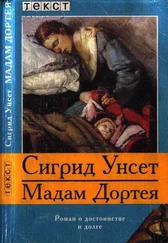“I mean, these people are actually happy about this catastrophe. They think any day now they’re going to be sucked up to heaven.”
Cole knew what his mother was talking about, but he didn’t understand. If God wanted to end the world, why wouldn’t he just do it? What was the point in giving a whole lot of people the flu first?
“Don’t ask me, sweetie. These people believe all kinds of things. All I know is, they think Jews like me are going to hell just for not being Christian. Let’s not talk about them anymore, it’s too depressing. Why don’t you toast some of that raisin bread? I’m going up to see Dad.”
Months later, wearing clothes that fit him but that weren’t his, and with his hair cut different from the way he usually wore it, Cole would find himself sitting across from a woman he didn’t know, answering questions.
So he’d never been to church before? Or any other kind of religious service? Was he sure? Religion had never been a part of family life?
They were in some kind of living room, though not in a house. Cole didn’t know if the building they were in was a church. It didn’t look like a church, but there was a painting of Jesus on one of the walls, and a banner in the foyer read Heaven. Don’t Miss It for the World.
Though the room was quiet and they were not sitting far apart, the woman had to ask him twice to repeat what he’d said. Her own voice was soft but clear. A flame-haired woman with a face like a platter and a shape that brought back Tickle, his old stuffed bear. Before she started questioning him she took his picture. When she asked him to smile, he tried, but the thought of Tickle made the corners of his mouth twitch, and for all he tried he could not prevent them from turning down instead of up. It’s all right, the woman said gently, and she snapped the picture anyway. She was young and kind.
Was he sure only his mother was Jewish? Then what was his father’s religion?
Atheist.
Well, atheism wasn’t a religion. It was the opposite of religion, the belief that there was no God.
He knew that.
So his dad was an atheist, but his mom was a Jew?
They were both atheists.
And would it be correct to say that’s what he was raised to believe, too? That there was no God and that all religion was wrong?
He’d been raised to believe religion was for retards. He’d been raised to believe people who were religious did more harm than good. He’d been raised to believe that God was a myth, that religion screwed up everything, that a person didn’t have to be religious in order to be a good person, that religious education of children was a kind of child abuse, and that if God did exist he’d have to be an atheist, too.
None of which he said.
And was it accurate to say that everyone else he and his family spent time with—friends, relatives—they were all unbelievers, too?
Now that he thought about it, yes.
Did he understand that whatever family he’d be placed with would not be atheists but most likely people for whom church was a very big part of their lives? Who worshipped God and believed that Jesus was the son of God, and who had taken Jesus as their personal savior? How would he feel about that?
He didn’t care. All he cared about was getting away from the orphanage.
EVERY MINUTE THAT SHE WASN’T with his father Cole’s mother wanted to be with him.
“We don’t have to talk,” she said. “I just want to be in the same room.”
With the TV off , if he didn’t mind. Then how would they know what was going on? The radio, she said. At least until the power went out again. It had already done so a few times, always during the day, thankfully, since they had no candles. They did have a flashlight—but where were the extra batteries?
A battery-operated radio was on the Emergency Home Preparedness must-have list, so of course they didn’t have one of those, either. Nor could all the money in the world buy them one now.
“Let’s face it,” his mother said with her look of a punished child. “I just wasn’t thinking. But with the move and all ...”
Cole looked away from her. He was not going to feel sorry for her this time. He knew what had really been distracting her. And now what would happen when his father got well again? Would she stay or go?
It was fine with him if she didn’t want the TV on, but it wasn’t fine with him that she also didn’t want him to listen to his iPod. If he was listening to his iPod or playing a video game or, when he was able to connect, browsing online, it was—to her—as if he wasn’t really there. He wasn’t with her the way she needed him to be. For her to be happy they had to be doing the same thing.
Meaning, if she was reading he had to be reading, too.
Why two people reading or watching TV together was okay, but one person reading and the other one listening to music was not okay—even she couldn’t explain it.
Besides, he didn’t want to read and she knew that. He wasn’t into reading, and, boy, did she know that .
It was a major family drama, how Cole’s life was going to be ruined because he didn’t like to read. In fact, he’d never read a whole book all the way through, not even when he was supposed to for school. He would read only as much as he had to in order to do the assignment. Depending on the book, he might skim all the pages or he’d read a chapter or two from the beginning, middle, and end. Sometimes he’d just Google or SparkNote the book. He’d never once got into trouble for not reading a whole book—proof that reading every page could not be all that important.
He wasn’t making any kind of statement. He was truly bored by most of the reading assigned at school—and he wasn’t the only one. Besides, he thought his parents were wrong. The kind of reading they did was something almost no one did anymore. Lots of successful people didn’t read books and the smartest kids at school weren’t necessarily the biggest readers, either. Things had changed, and Cole knew you didn’t have to feel bad anymore for not reading novels or poetry. Even his parents didn’t read poetry. And no, he didn’t feel proud that his parents had tried writing novels themselves (his mother had finished hers but couldn’t get it published; his father had quit before finishing his but was planning to get back to it that summer); he felt embarrassed.
Whenever he tried to read a book recommended by one of his parents, it could keep his attention for only so long. He’d put it down one day and then never pick it up again. And just because so many other kids thought Harry Potter was dope didn’t mean he had to think so, too.
All those hours Cole spent on the Internet apparently didn’t count. That wasn’t reading, that was viewing, his father said.
To his parents, Cole’s failing—weakness, whatever—was so bizarre, so unlikely (“It’s in your genes !”), that they’d had him tested.
But: “I’m afraid there’s no excuse, m’ boy,” said his father. Cole didn’t have dyslexia or any other learning disability. He was just intellectually lazy .
And: “If you don’t start reading more—if you don’t develop a love of literature while you’re young—you’ll probably always be an underachiever.” Which was what everyone seemed to agree he was now.
But there was one kind of literature he already had a love for, and that was comic books. He’d always loved comics, a love his father shared—it was his father who’d given him his first Marvel comics. But unlike his father Cole also liked sketching and doodling. He’d always wanted to create his own comic book, and once he’d even tried.
Читать дальше














